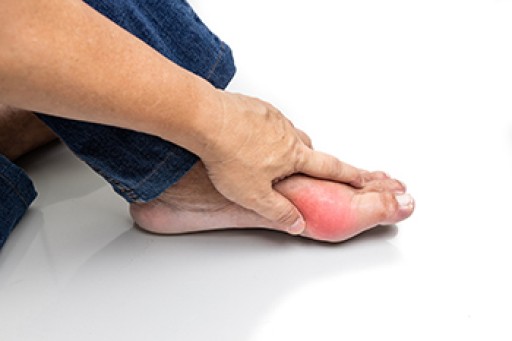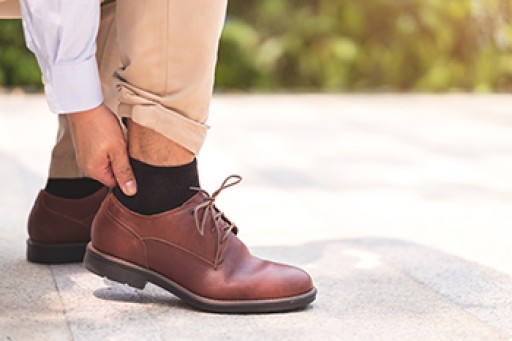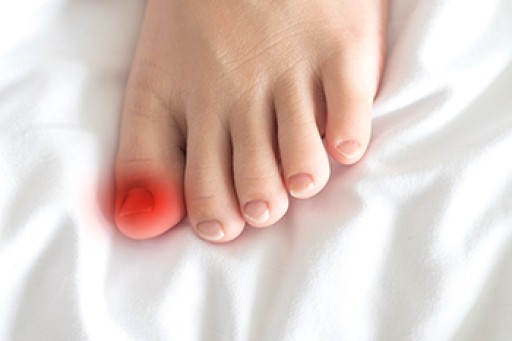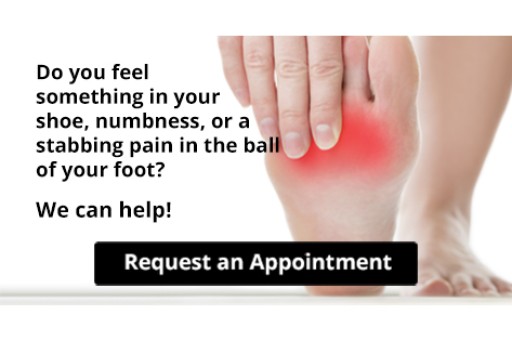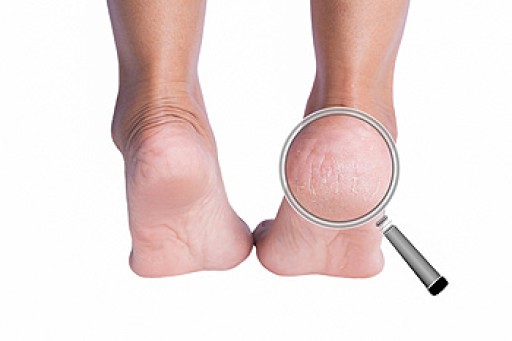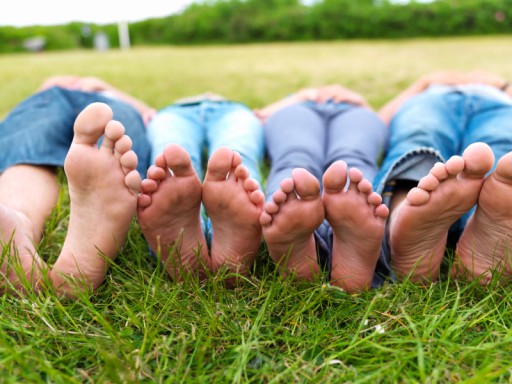
Gout can be extremely painful. It is a foot condition that is a form of arthritis and causes the joints in the big toe to become inflamed. Women who have gone through menopause and men who are over 40 years old may be prone to developing gout. Additionally, patients who are diabetic, have high blood pressure, and are overweight may be a target for gout. It can occur from factors like genetics or from eating certain types of foods. These can include foods that have purines, such as shellfish, red meat, and drinks made with large amounts of sugar. Uric acid is produced from purines, and an excess amount of this can lodge in the joints of the big toe. Accompanying symptoms often include debilitating pain, and the affected toe may be red and swollen. Preventive measures can include monitoring glucose levels, drinking plenty of water, and engaging in a gentle exercise routine. Gout can happen once or people can get frequent attacks, and if this applies to you, it is suggested that you consult with a podiatrist who can help you manage this condition.
Gout is a painful condition that can be treated. If you are seeking treatment, contact one of our podiatrists from Associates in Podiatry, PC. Our doctors will treat your foot and ankle needs.
What Is Gout?
Gout is a form of arthritis that is characterized by sudden, severe attacks of pain, redness, and tenderness in the joints. The condition usually affects the joint at the base of the big toe. A gout attack can occur at any random time, such as the middle of the night while you are asleep.
Symptoms
- Intense Joint Pain - Usually around the large joint of your big toe, and it most severe within the first four to twelve hours
- Lingering Discomfort - Joint discomfort may last from a few days to a few weeks
- Inflammation and Redness -Affected joints may become swollen, tender, warm and red
- Limited Range of Motion - May experience a decrease in joint mobility
Risk Factors
- Genetics - If family members have gout, you’re more likely to have it
- Medications - Diuretic medications can raise uric acid levels
- Gender/Age - Gout is more common in men until the age of 60. It is believed that estrogen protects women until that point
- Diet - Eating red meat and shellfish increases your risk
- Alcohol - Having more than two alcoholic drinks per day increases your risk
- Obesity - Obese people are at a higher risk for gout
Prior to visiting your podiatrist to receive treatment for gout, there are a few things you should do beforehand. If you have gout you should write down your symptoms--including when they started and how often you experience them, important medical information you may have, and any questions you may have. Writing down these three things will help your podiatrist in assessing your specific situation so that he or she may provide the best route of treatment for you.
If you have any questions, please feel free to contact our offices located in Pittsburgh-South Hills, and Pittsburgh-Bellevue, PA . We offer the newest diagnostic and treatment technologies for all your foot care needs.
